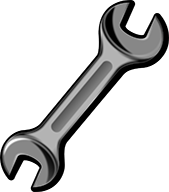Deductible Expenses for Mechanics

If you're a mechanic, you may already know that you can incur expenses for your job which aren't reimbursed by your employer. But are you aware that you may be entitled to a deduction of these expenses when tax time rolls around. You'll need to keep all your receipts in order to maximize your deductions, so store them somewhere safe throughout the year.
Your Form W-2 will list the amount of taxes you paid, which were deducted from your paycheck by your employer. If you work for yourself, or do side jobs as a mechanic, the money you make is considered self-employment income, in which any amounts over $400 are subject to self-employment tax. Throughout the tax year, you make have to make estimated tax payments to cover the amount you reported on Schedule C, Profit and Loss from Business. Self-employed individuals will receive a 1099-MISC from those who they contract with for work.
The following expenses can be deducted with correct documentation:
- Subscriptions to work related trade publications
- Union and trade association dues
- Premiums for liability and protection from wrongful acts insurance
- Any tools or special equipment needed to accurately perform your job duties
- Uniform maintenance and costs provided the uniform is required and not able to be worn everyday
- Safety equipment such as goggles, steel-toed boots
- Licensing and regulation fees, provided it is not paid for initial certification
Your able to deduct any fees incurred through job searching, as long as you are looking for work in the same field as your previous job. You can hold odd jobs during the search.
Continuing education may be deductible if the courses meet certain requirements. Typically, this includes refresher courses, vocational classes, and classes regarding new developments in the field. Educational expenses that allow you to pursue a new field or allow you to meet the minimum requirements of your current field can't be deducted.
Mechanics who are self-employed can also deduct the following business expenses on a Schedule C:
- Supplies and incidentals
- Tools and equipment repair
- Advertising costs
- Business bad debt
- Employee compensation such as commission and bonuses
- Rental expenses for property
- Excise taxes
- Legal fees



